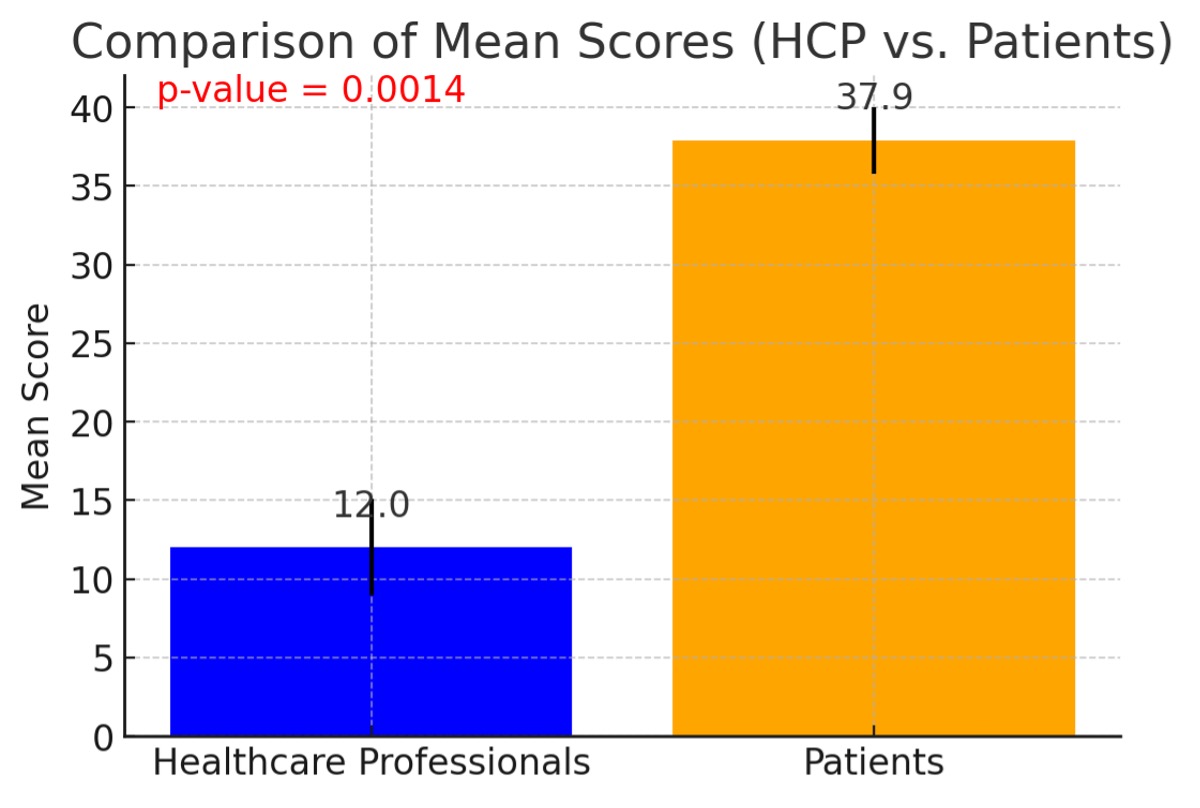Monday Poster Session
Category: Diet, Nutrition, and Obesity
P2682 - Assessing Online Nutrition Information for IBS: A Quality and Readability Study
Monday, October 27, 2025
10:30 AM - 4:00 PM PDT
Location: Exhibit Hall

Lucas Miecho Heilbroner, BA (he/him/his)
George Washington University School of Medicine and Health Sciences
Washington, OR
Presenting Author(s)
Lucas Miecho. Heilbroner, BA1, Zeina Bani Hani, MBBS2, Athanasios S. Naum, BS1, Kris Kokoneshi, BS1, Ishan Abdullah, BS1, Val Stark, MD1, Mason Eghbali, MD3, Mrudula Bandaru, MD2, Omar Saadi, BS4, Marie L. Borum, MD, EdD, MPH, FACG5
1George Washington University School of Medicine and Health Sciences, Washington, DC; 2Department of Medicine, George Washington University School of Medicine and Health Sciences, Washington, DC; 3The George Washington University Hospital, Department of Medicine, Washington, DC; 4The George Washington University School of Medicine and Health Sciences, Washington, DC; 5Division of Gastroenterology and Liver Disease, Department of Medicine, George Washington University School of Medicine and Health Sciences, Washington, DC
Introduction: Irritable bowel syndrome (IBS) is a gastrointestinal disorder often marked by abdominal pain, bloating, and altered bowel habits. Despite the range of treatments available for IBS, many patients report persistent symptoms. Online resources covering nutritional interventions have grown, but their quality and readability vary. This study used validated assessment tools to evaluate website information about IBS and nutrition in patient-focused and healthcare professional-focused websites.
Methods: A Google search using the terms ‘IBS’ and ‘Nutrition’ resulted in websites that were categorized by target audience: healthcare professionals (HCPs) or patients. Video format and commercial advertisements were excluded. Readability was determined using the validated Flesch-Kincaid Grade Level Calculation and Reading Ease, with 8 subcategory ratings from Professional (0–10) to 5th grade (90–100). The validated DISCERN questionnaire was used to assess the quality and reliability of information, with ratings categorized as: Very Poor (16–26), Poor (27–38), Fair (39–50), Average (51–62), Good (63–75), and Excellent (76–80). Statistical analysis used two-tailed unpaired Welch’s t-tests to account for unequal variances between groups with significance set at p< 0.05.
Results: Out of 108 consecutive websites, 8 were excluded, leaving 100 sites: 86 targeting patients and 14 targeting HCPs. Websites analyzed included 25 academic, 7 research, 7 government-affiliated, 16 hospital-affiliated, 41 informational, and 4 were news publications. There was a significant difference in the Flesch-Kincaid Grade level between sites for HCPs (M=12.0, SD=3.07) and patients (M=37.9, SD=2.14); p-value=0.0014, as well as reading ease between sites for HCPs (M=34.5, SD=15.30) vs. patients (M=55.0, SD=10.81); p-value=0.0002. The quality of content across all sites was Average (DISCERN score= 54.85) with a significant difference between sites for HCPs (M=67.1, SD=10.92) and patients (M=52.9, SD=12.67); p-value=0.0003.
Discussion: The readability of online information on IBS was significantly more advanced than the AMA-recommended 6th-grade and the NIH-recommended 8th-grade reading level for patients. Patient-focused websites had a reading level of 10th–12th grade, while HCP websites were written at a college level. The quality of all websites was average. Providers should be aware of the website readability challenges and help patients find reliable, accessible resources to support informed choices about nutrition and diet.

Figure: There was a significant difference in the Flesch-Kincaid Grade level between websites directed at healthcare professionals (M=12.0, SD=3.07) and websites directed at patients (M=37.9, SD=2.14); p-value=0.0014, suggesting the need to lower the reading level of resources.
Disclosures:
Lucas Heilbroner indicated no relevant financial relationships.
Zeina Bani Hani indicated no relevant financial relationships.
Athanasios Naum indicated no relevant financial relationships.
Kris Kokoneshi indicated no relevant financial relationships.
Ishan Abdullah indicated no relevant financial relationships.
Val Stark indicated no relevant financial relationships.
Mason Eghbali indicated no relevant financial relationships.
Mrudula Bandaru indicated no relevant financial relationships.
Omar Saadi indicated no relevant financial relationships.
Marie Borum indicated no relevant financial relationships.
Lucas Miecho. Heilbroner, BA1, Zeina Bani Hani, MBBS2, Athanasios S. Naum, BS1, Kris Kokoneshi, BS1, Ishan Abdullah, BS1, Val Stark, MD1, Mason Eghbali, MD3, Mrudula Bandaru, MD2, Omar Saadi, BS4, Marie L. Borum, MD, EdD, MPH, FACG5. P2682 - Assessing Online Nutrition Information for IBS: A Quality and Readability Study, ACG 2025 Annual Scientific Meeting Abstracts. Phoenix, AZ: American College of Gastroenterology.
1George Washington University School of Medicine and Health Sciences, Washington, DC; 2Department of Medicine, George Washington University School of Medicine and Health Sciences, Washington, DC; 3The George Washington University Hospital, Department of Medicine, Washington, DC; 4The George Washington University School of Medicine and Health Sciences, Washington, DC; 5Division of Gastroenterology and Liver Disease, Department of Medicine, George Washington University School of Medicine and Health Sciences, Washington, DC
Introduction: Irritable bowel syndrome (IBS) is a gastrointestinal disorder often marked by abdominal pain, bloating, and altered bowel habits. Despite the range of treatments available for IBS, many patients report persistent symptoms. Online resources covering nutritional interventions have grown, but their quality and readability vary. This study used validated assessment tools to evaluate website information about IBS and nutrition in patient-focused and healthcare professional-focused websites.
Methods: A Google search using the terms ‘IBS’ and ‘Nutrition’ resulted in websites that were categorized by target audience: healthcare professionals (HCPs) or patients. Video format and commercial advertisements were excluded. Readability was determined using the validated Flesch-Kincaid Grade Level Calculation and Reading Ease, with 8 subcategory ratings from Professional (0–10) to 5th grade (90–100). The validated DISCERN questionnaire was used to assess the quality and reliability of information, with ratings categorized as: Very Poor (16–26), Poor (27–38), Fair (39–50), Average (51–62), Good (63–75), and Excellent (76–80). Statistical analysis used two-tailed unpaired Welch’s t-tests to account for unequal variances between groups with significance set at p< 0.05.
Results: Out of 108 consecutive websites, 8 were excluded, leaving 100 sites: 86 targeting patients and 14 targeting HCPs. Websites analyzed included 25 academic, 7 research, 7 government-affiliated, 16 hospital-affiliated, 41 informational, and 4 were news publications. There was a significant difference in the Flesch-Kincaid Grade level between sites for HCPs (M=12.0, SD=3.07) and patients (M=37.9, SD=2.14); p-value=0.0014, as well as reading ease between sites for HCPs (M=34.5, SD=15.30) vs. patients (M=55.0, SD=10.81); p-value=0.0002. The quality of content across all sites was Average (DISCERN score= 54.85) with a significant difference between sites for HCPs (M=67.1, SD=10.92) and patients (M=52.9, SD=12.67); p-value=0.0003.
Discussion: The readability of online information on IBS was significantly more advanced than the AMA-recommended 6th-grade and the NIH-recommended 8th-grade reading level for patients. Patient-focused websites had a reading level of 10th–12th grade, while HCP websites were written at a college level. The quality of all websites was average. Providers should be aware of the website readability challenges and help patients find reliable, accessible resources to support informed choices about nutrition and diet.

Figure: There was a significant difference in the Flesch-Kincaid Grade level between websites directed at healthcare professionals (M=12.0, SD=3.07) and websites directed at patients (M=37.9, SD=2.14); p-value=0.0014, suggesting the need to lower the reading level of resources.
Disclosures:
Lucas Heilbroner indicated no relevant financial relationships.
Zeina Bani Hani indicated no relevant financial relationships.
Athanasios Naum indicated no relevant financial relationships.
Kris Kokoneshi indicated no relevant financial relationships.
Ishan Abdullah indicated no relevant financial relationships.
Val Stark indicated no relevant financial relationships.
Mason Eghbali indicated no relevant financial relationships.
Mrudula Bandaru indicated no relevant financial relationships.
Omar Saadi indicated no relevant financial relationships.
Marie Borum indicated no relevant financial relationships.
Lucas Miecho. Heilbroner, BA1, Zeina Bani Hani, MBBS2, Athanasios S. Naum, BS1, Kris Kokoneshi, BS1, Ishan Abdullah, BS1, Val Stark, MD1, Mason Eghbali, MD3, Mrudula Bandaru, MD2, Omar Saadi, BS4, Marie L. Borum, MD, EdD, MPH, FACG5. P2682 - Assessing Online Nutrition Information for IBS: A Quality and Readability Study, ACG 2025 Annual Scientific Meeting Abstracts. Phoenix, AZ: American College of Gastroenterology.
